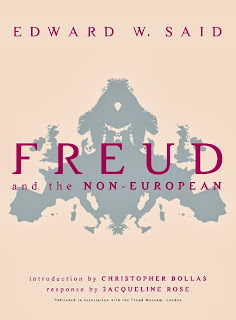Showing posts with label Edward W. Said. Show all posts
Showing posts with label Edward W. Said. Show all posts
Orientalism by Edward W. Said
For generations now, Edward W. Said's Orientalism has defined our understanding of colonialism and empire, and this Penguin Modern Classics edition contains a preface written by Said shortly before his death in 2003.
In this highly-acclaimed work, Edward Said surveys the history and nature of Western attitudes towards the East, considering orientalism as a powerful European ideological creation - a way for writers, philosophers and colonial administrators to deal with the 'otherness' of eastern culture, customs and beliefs. He traces this view through the writings of Homer, Nerval and Flaubert, Disraeli and Kipling, whose imaginative depictions have greatly contributed to the West's romantic and exotic picture of the Orient. Drawing on his own experiences as an Arab Palestinian living in the West, Said examines how these ideas can be a reflection of European imperialism and racism.
Edward W. Said (1935-2003) was a Palestinian-American cultural critic and author, born in Jerusalem and educated in Egypt and the United States. His other books include The Question of Palestine, Culture and Imperialism and Out of Place: A Memoir.
Freud and the Non-European
Banned by the Freud Institute in Vienna, this controversial lecture became Edward Said's final book. Using an impressive array of material from literature, archaeology and social theory, Edward Said explores the profound implications of Freuds Moses and Monotheism for Middle-East politics today.
The resulting book reveals Said's abiding interest in Freud's work and its important influence on his own. He proposes that Freud's assumption that Moses was an Egyptian undermines any simple ascription of a pure identity, and further that identity itself cannot be thought or worked through without the recognition of the limits inherent in it. Said suggests that such an unresolved, nuanced sense of identity might, if embodied in political reality, have formed, or might still form, the basis for a new understanding between Jews and Palestinians. Instead, Israel's relentless march towards an exclusively Jewish state denies any sense of a more complex, inclusive past.
Introduction by Christopher Bollas
With contributions by Jacqueline Rose
 |
| Edward Wadie Said |
Subscribe to:
Posts (Atom)
 |
| Bartleby, the Scrivener: “I would prefer not to.” |



